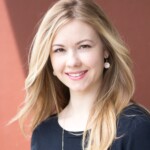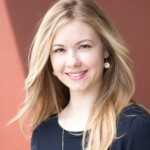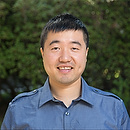Page 55 • (1,170 results in 0.029 seconds)
-
Thank you for your interest in supporting Natural Sciences at PLU! There are many great options for designating your gifts to a particular department or area of the sciences.
Sciences Division: Natural Sciences Equipment Endowment Fund Natural Sciences Summer Undergraduate Research Program Endowment Fund donations could be further specified into: mentor salaries student researcher fellowships research supplies research travel research equipment Natural Sciences Gift Fund MESA Program (Mathematics, Engineering, Science Achievement) helping support K-12 STEM education for underrepresented students Natural Sciences Departments: Biology Gift Fund Chemistry Gift Fund If you are
-

Executive Director of Sponsored Programs | Office of Advancement | erica.lueth@plu.edu
Erica Lueth Executive Director of Sponsored Programs Email: erica.lueth@plu.edu Professional Education M.S.H.S., Clinical Research Administration, The George Washington University B.A., Biology, Society, and the Environment, University of Minnesota - Twin Cities Areas of Emphasis or Expertise Pre-award & post-award sponsored programs administration Federal grant seeking support, training, and management Proposal & budget development
Contact Information -

Executive Director of Sponsored Programs | Sponsored Programs | erica.lueth@plu.edu
Erica Lueth Executive Director of Sponsored Programs Email: erica.lueth@plu.edu Professional Education M.S.H.S., Clinical Research Administration, The George Washington University B.A., Biology, Society, and the Environment, University of Minnesota - Twin Cities Areas of Emphasis or Expertise Pre-award & post-award sponsored programs administration Federal grant seeking support, training, and management Proposal & budget development
Contact Information -
Pre-Health Sciences Advising faculty and staff.
Julie Smith Endowed Strandness Honorary Professor of Biology Full Profile 253-535-7307 smith@plu.edu
-
News articles and blog posts from Pacific Lutheran University.
Ash Bechtel ’24 combines science and social work for holistic view of patient care; aims to serve Hispanic community Ash Bechtel has always wanted to be in healthcare, but she wasn’t sure which direction to take — nursing or medical school. So, Ash counseled with family and academic advisors before deciding to pursue a biology major that would lead her to becoming a doctor.… June 13, 2024 AcademicsBiologyGender Sexuality and Race StudiesGlobal EducationPre-HealthReformerSciencesSeekerStudent
-

TACOMA, Wash. (May 23, 2019 ) — Judging by its accomplishments, Pacific Lutheran University’s Class of 2019 is poised to make an immediate impact on the world — mostly because they already have done so much at PLU. Here’s a look at just a handful…
and Lute lingo with Zari Warden November 19, 2024 Major Minute Monday: Global Studies November 18, 2024 You Ask, We Answer: Do you have Marine Biology? November 15, 2024
-

Elizabeth Larios ’21 decided she was going to be a neurosurgeon in the fourth grade. That’s when her class took a field trip to a science museum and Larios saw an exhibit about the human brain. Returning home that day, she told her mom: “I’m…
, she told her mom: “I’m going to be a neurosurgeon!” In the following years, her decision was cemented by books she read in middle school classrooms, biology classes she took in high school, and eventually, the teachers and mentors she met at Pacific Lutheran University. Now, the Bonney Lake, Washington native has graduated and earned a prestigious Fulbright research grant — a national award that only 20 percent of applicants receive after a rigorous, year-long application process. In January, she
-

Associate Professor | Department of Computer Science | caora@plu.edu | 253-535-7409 | My research interest is mainly focused on developing and applying machine learning and data mining techniques to solve biomedical problems, such as human genome data analysis and protein structure predictions.
, 2008 Areas of Emphasis or Expertise Machine learning Data science Bioinformatics Selected Presentations 23rd International Conference on Intelligent Systems for Molecular Biology (ISMB), Large-Scale Model Quality Assessment for Improving Protein Tertiary Structure Prediction (2015) The 5th International Conference on Wireless Communications Networking and Mobile Computing, WiCOM, Apply Modified Method of Nonlinear Optimization to Improve Localization Accuracy in WSN, Beijing (2009) Selected
Office HoursMon: 10:00 am - 2:00 pmMon - Fri: - -
Caltech is excited to announce two summer research opportunities available to continuing undergraduate students. WAVE FELLOWS PROGRAM The WAVE Fellows program provides support for talented undergraduates intent on pursuing a Ph.D. to conduct a 10-week summer research project at Caltech. The program aims to foster…
experience and can articulate how their research interests align with Caltech’s research areas. Support: WAVE Fellows will receive a $6000 award for the ten-week program and an additional $500 housing/travel supplement. Application: Online applications are due January 12, 2018. For more information, visit http://www.sfp.caltech.edu/programs/wavefellows AMGEN SCHOLARS PROGRAM Caltech’s Amgen Scholars Program is geared towards students in biology, chemistry, and biotechnology fields. Some of these fields
-

As a first-generation college student, Brandi Hilliard was nervous when she began her studies at Pacific Lutheran University. But those uncomfortable feelings soon diminished. “I found PLU to be a warm, supportive and an intimate community, which made it an easy place to fit in,”…
you would like to share? There are a lot of local employers looking to recruit students from PLU for jobs and internships because they’ve found our graduates to be some of the most passionate, hard-working and service-oriented employees.PLU Alumni & Student ConnectionsAlumni & Student Connections supports each Lute in utilizing the PLU network to help make their visions a reality. Read Previous Beautiful mutants: a PLU biology class harvests for the future Read Next Dr. Erik Arnits ’11 relies on
Do you have any feedback for us? If so, feel free to use our Feedback Form.


